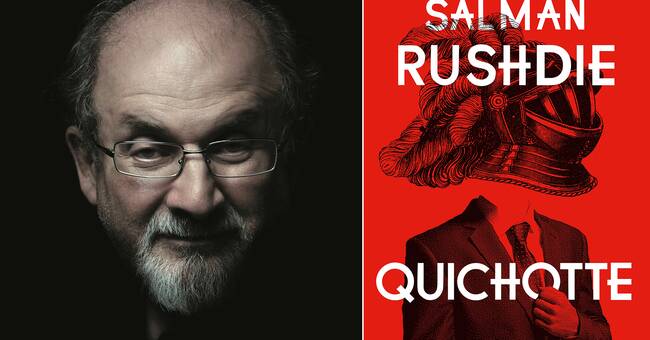Don Quixote had read romantic novels and rode out in search of love.
The year was 1605 and the readers of Cervante's account of the confused clairvoyant knight received in return a round painting of Spain, especially the bad sides of the country.
Salman Rushdie's new "Quichotte" depicts, with Quijote as a model, our own doomed society.
Rushdie has never
been a masterful writer, nor this time does he delete any of his whims, but goes out of his way to then increase the pace.
Hans Quichotte turns out to be a retired Indian-American salesman who spends his days watching TV until he can no longer distinguish between fiction and reality and falls in love with Salma R, the heroine of a soap opera.
He fantasizes about a son, Sancho, and together they set out in search of love.
During the journey, they encounter all the misery imaginable: doctors contributing to the opioid abuse epidemic that has claimed hundreds of thousands of lives in the United States, brutal racism, 97 porn motels in cheap motels, lies and half-truths.
In short, we are in Trumpland.
But, as it turns out, we, and Quichotte, are also in the head of a fictional writer.
This author comes from the same neighborhood in Bombay - at the time the city was so named - as Quijotte, who is his novel character and alter ego in a story of exile and embezzlement, divorce, fathers - and sons who distance themselves from fathers.
In that sense, this novel is
an intricate system of Chinese boxes, a depiction of England, India and the United States, an autobiographical novel inside an autobiographical novel and, as always with Rushdie, a raffle that revolves around allusions to literary classics, popular music, movies, television programs and cartoon characters.
Lots of lottery tickets for those who are amused by guessing correctly but also overwhelmingly close to the tiring limit.
And yet: every storm holds moments of declared calm.
When Rushdie is at his best, he varies restless parties with wonderful dialogues and moments of pure and quiet sadness over the state of affairs.
Because if Don Quixote is the world's first modern novel, Quichotte is nothing short of a demanding attempt to write the last great postmodern novel before we die and the earth goes under.
That ambition can be honored, even if there are probably more novels.
And in addition, Rushdie's readers get the urge to read Cervantes.

